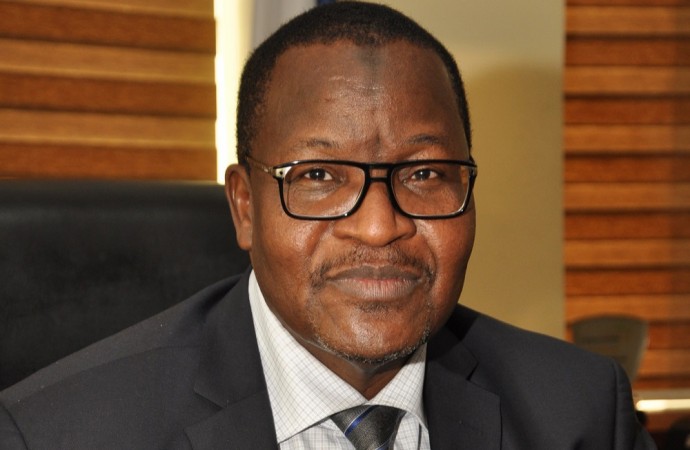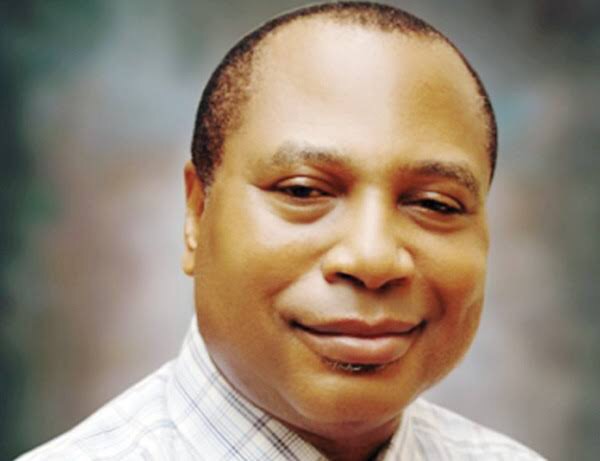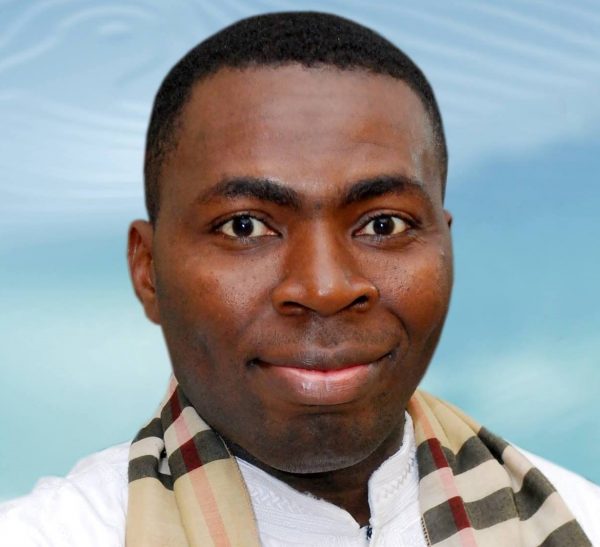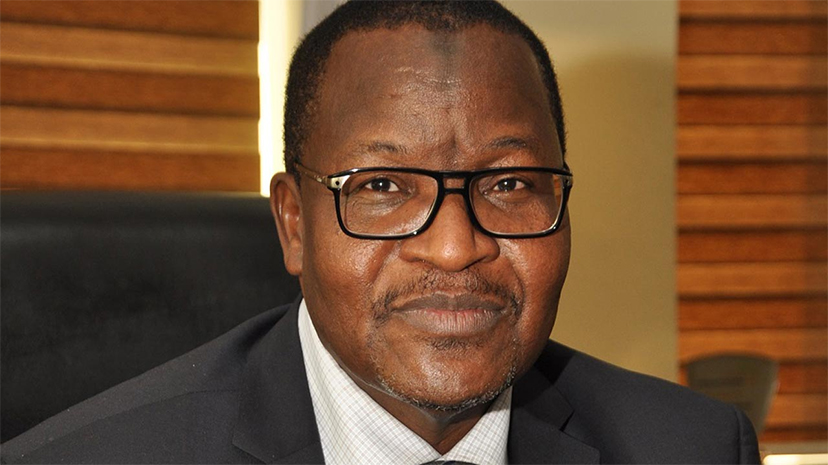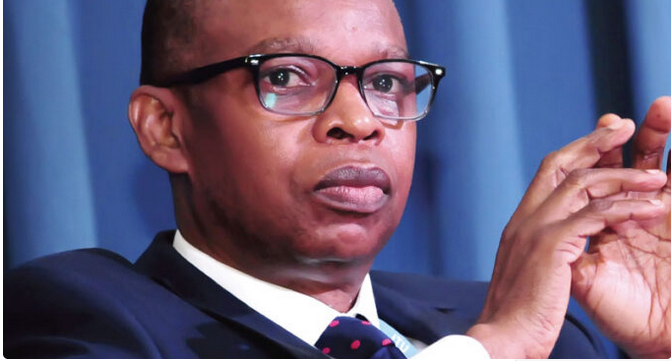By Okoh Aihe
You write speeches, prepare presentations and did notes that were greeted with smiles from the inner recesses of a very private individual, and the materials are presented with attention to the minutest details with every little inch observed. You enjoy the private opportunities to discuss industry and regulatory issues that would ever remain sealed in the expanse accommodation of the executive office. And now one has to write final notes that would never be read by that genial face, because his journey has started; and once on that journey, the exigent demands to complete it and put a closure, hardly accommodate any distractions.
Once life is given, there is a demand, that one day one would have to make this journey by way of returning to the owner of life. On October 9, 2021, Dr Eugene Ikemefuna Juwah started his journey most unexpectedly.
In breaking the unfortunate news to his other family, the Nigerian Communications Commission (NCC), his son, Eugene Chukwugoziem Juwah wrote: “The family of Dr Eugene Juwah, with a heavy heart, notify the Executive Vice Chairman/Chief Executive, Prof Umar Garba Danbatta, FNSE, FRAES, FAEng, FINEEE, The Board of Commissioners, Management and Staff of the Nigerian Communications Commission, of the sudden death of our Father and Husband, Dr Eugene Juwah, on the 9th October, 2021, after a brief illness in Canada.”
The news is so goring and strikes straight at the heart. Such abrupt cessation of a much resourced life is so painful and will certainly be missed.
Dr Juwah joined the NCC in 2010 as the Executive Vice Chairman, EVC, and his appointment elicited some praises for the government. Perhaps looking at the sterling performance of Engr Ernest Ndukwe who, through sheer genius and grit of character, had built a solid foundation for the telecommunications industry, the government opted for a proven industry expert and picked Juwah, with a demonstrable industry practice, who had worked with Communications Investment Limited (CIL) and Mobile Telecommunications Services Ltd (MTS).
With a PhD from the University of Manchester and an MSc from the Technical University of Veszprem, and a glittering industry practice with niche organisations, Juwah was a total package for the regulatory Commission with requisite personality pull to rally industry support for next level growth aspirations. With a leg in erudition, industry and then regulation, Juwah plunged on the job with comfortable dexterity.
A lecturer once said at the Lagos Business School that every chief executive of a corporation comes with his/her own style of administration. Juwah had his, and it was interesting and compound.
Before his appointment, corporate governance at the NCC had witnessed some shaking within months with two transition executive heads struggling for control. Fortunately, NCC was built in such a way that it could run on auto pilot for a time before serious damage can be done. Juwah came at a time the Commission needed its stability reinforced and he drew on his residual executive experience to restore calm in the Commission.
There is a healthy saying that government is a continuum, which ordinarily should mean that no new government gets into office and start a journey from the scratch. But not in this part of the world where previous administrations are cast in slur just to damn them forever but which necessarily does not guarantee performance for the new administration.
For Juwah at the NCC, government was a continuum. He kept faith with the culture of the Commission to contemplate the most immediate steps.He embarked on industry stakeholder consultations to determine areas of strategic focus by his administration. The focus areas are summarised as follows: a return of the fixed line infrastructure along the national broadband development plan, enhancement of consumer, vigorous compliance monitoring and enforcement to achieve lasting industry sanity, to improve national connectivity, enhance Nigeria’s relationship within the global telecom community, and consolidation of Mobile Wireless Services, including Quality of Service.
The identified pathways were further tied to one major and most desirable programme for a futuristic nation: Development of pervasive, affordable and robust broadband infrastructure.
At the end, after a nationwide painstaking process of infrastructure inventory and appraisal of broadband prospects in Nigeria, the nation chose the Open Access Model to achieve rapid, pervasive and affordable broadband infrastructure and services.
Juwah pursued his vision with determinate drive and focus and would eventually earn the sobriquet, Mr Broadband.
Fortunately,he had a good board encouraging every of his step. The board which was headed by Engr Peter Igoh, included other members who had liberated minds and discipline to engage in discourse on any issue in telecommunications apropos its relevance to national development.
Results poured in for Juwah. Mobile lines uptake and internet connection spiked, investment soared to over $32bn, and there was epidemic infrastructural transformation of the Digital Bridge Institute (DBI) across the country to prepare it for expected tech revolution. The Universal Service Provision Fund (USPF) for the first time developed an access gap map to show areas of telecoms service unavailability across the country. Contribution of telecoms to GDP climbed to 9.25 per cent in the second quarter of 2014. Some drastic industry decisions were taken to contain the excesses of stakeholders. The times really were good.
Jerry Ugwu, Chief of Staff (COS) to Juwah wrote of his boss, “A self-effacing, focused, diligent and goal oriented professional, he brought tested skills and qualities to the job, without any razzmatazz as any regulator who understands the nature of the job ought to do. That none publicity hugging nature made him very effective on the job as he set out to consolidate on key aspects of the industry on which his predecessor had established visible footprints, but no doubts left very indelible footprints of his own. The consolidation of the growth in the voice segment and the pivot to, and growth in the data segment was laid and cemented during his tenure. The personnel growth in manpower was in full consonance with need as a regulatory Commission strictly in adherence to Federal Character Principles and strict observance of all policy regulations, financial and otherwise. He fleshed out and drove the SimCard Registration and enacted the regulations to booth, the Mobile Number Portability (MNP), improvement in quality of service, cashless payment solution,etc. Dr. Juwah’s stewardship in the Commission is sterling and indelible. Those who had the privilege of serving in the Commission during his time are daily coming to terms with the sense of balance, equity and sense of justice which he sought to bequeath, which some may not have fully understood at the time.”
In Juwah the nation has lost a great patriot. Delta has lost a great son. And some of us have lost a boss and a friend, a technocrat who, in the final analysis, may not have been fairly treated by the very nation he loved and served. May you find peace on the other side and may your memory remain a blessing to the rest of us.
